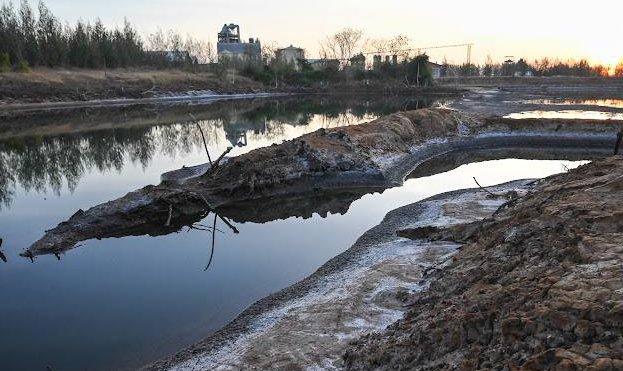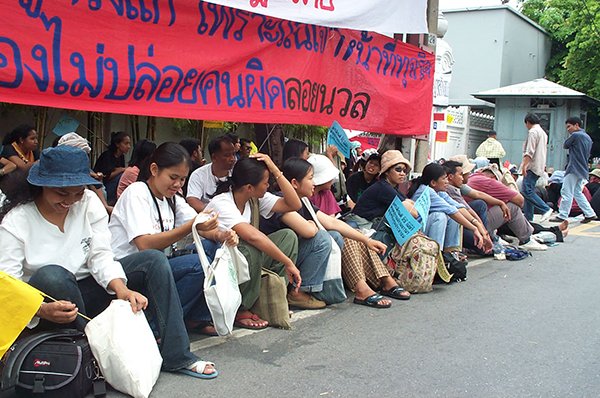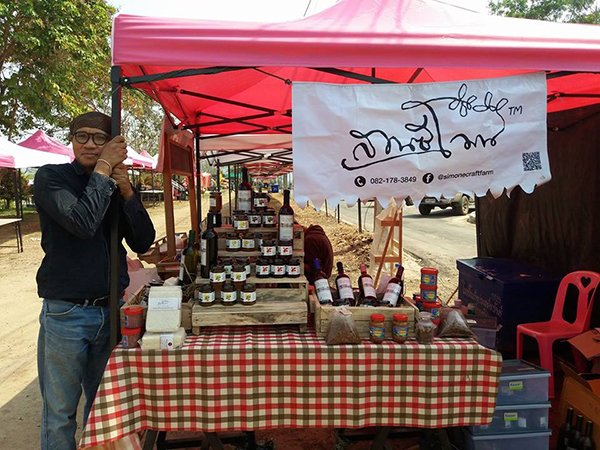ASIAN CITIES DECLARATION ON HOMEBASED WORKERS
825 12 May 2014

- We, Mayors, City Administrators, Senior Government Officers, Networks of Homebased Workers, and Researchers from South and South East Asian countries, including Bangladesh, Cambodia, India, Nepal, Pakistan, Philippines, Thailand and Sri Lanka, met at Pattaya, Thailand, from7th to 9th May 2014, at the Regional Conference of City Authorities on Homebased Workers, jointly organized by HomeNet South Asia and HomeNet Thailand.
- We note that the Governments of South and South East Asia have committed to according all workers their basic and universal rights. With regard to Homebased workers,we recall the ILO Convention 177 of 1996 on Home Work,the Kathmandu Declaration of 2000 and the South Asia Plan of Action for Homebased Workers, 2007that urged the recognition of Homebasedworkers and steps to bring them into the national economic mainstream; formulation of National Policies for Homebased Workers; integration into regional markets; and raising their visibility and voice.
- After having deliberated, over the last three days, on the concerns and challenges of urban Homebased workers in the cities of Asia, we note the following:
- Homebased workers contribute significantly to the city’s economy. They are linked to the formal economy and value chains, and local markets. In spite of this, they are not accorded their basic rights as productive workers and remain largely invisible, unrepresented and voiceless, and are not generally incorporated in the national and city development agendas and programmes.
- Homebased workersproduce goods or services for the market from within or around their own homes:stitching garments and weaving textiles; producing craft products; processing and preparing food items; assembling or packaging electronics, automobile parts, and pharmaceutical products; selling goods or providing services; or doing clerical or professional work, among other activities.
- There are at least 50 million homebased workers in South Asia (Kathmandu Declaration 2000), with large numbers in South East Asian countries as well. The vast majority of HBWs are women, making up approximately 75-80% of homebased workers in South and South East Asia.
- Homebased workers include (i) self-employed (mainly own account) workers and(ii) sub-contracted piece rate workers (sometimes referred to as homeworkers).Thehomebased workers’ remuneration/earnings are generally very low and they absorb many of the costs of production themselves.
- Homebased workers have limited access to social security, skill up-gradation opportunities, credit and markets. This is because they are generally notrecognized as workers and are unable to register themselves as workers with relevantagencies.
- For the homebased workers, their home is also their workplace. Their homes are generally of poor quality, with small houses subject to such problems as leaking roofs and waterlogging that damages their raw materials and products.
- Homebased workers work gets disrupted in the event of slum evictions, whose instances have increased with the idea of the ‘Making of World Class Cities’ gaining ascendance in urban policy making.
- Some hazardous work, creates health problems forHBWworkers and other family members, in particular the children who are constantly exposed to hazardous chemicals.
- Homebased workers regularly need to travel to access raw materials,deal with contractors, suppliers, and customers, and sell goods. In the absence of accessibility, they become dependent on the contractors for work and are thus subject to exploitation and uncertainties.
- For economic growth and poverty reduction,Homebased workers along with the other working poor in the informal economy, need to be integrated into national and local development planning.
- Mindful of our roles and responsibilities in the above context, we understand that in order to promote the growth and prosperity of our cities, we need to address the concerns of urban homebased workers and integrate them into urban and economic plans. We therefore recommend:
- Overarching recommendations:
- Homebasedworkers need to berecognized as ‘workers’ in urban areas and as contributors to the national and urban economy.
- Local bodies/ relevant authorityshould conduct surveys of the numbers and contribution of homebased workers within their jurisdiction.
- The local authority should ensure that homebased workers and their organisationsare registered and provided identity cards that will enable them to access different schemes of the government.
- Where needed, existing government schemes and services should be modified to include homebased workers and address their specific needs. Where no such scheme or service exists in a particular urban area, the concerned city authority should consider learning from experiences of other cities and starting something on similar lines, keeping in view local requirements and customs.
- Different departments and levels of government (local, state/provincial, national) need to coordinateand should work together on different aspects of homebased workers recognition and rights, to ensure their effectiveness.
- In order to ensure awareness as well as easy access to services and schemes, the design and procedures of schemes should be revisited and options such as ‘one window services’ (‘one stop shop’) for homebased workers should be adopted.
- Activities including awareness campaigns, bringing out a customized package/compendium of schemes and services for urban homebased workers, and camps for assisting themwith their documentation to apply for services and schemes should be initiated by the relevant agencies.
- Organizations of homebased workers should be promoted, and they should be included indecision-making processes including planning and budgeting processes as well as implementation and monitoring of programmesof civic bodies, by including them in appropriate committees and boards (e.g., for determining master plans, zoning plans, land use plans; for slum up-gradation; for housing; for transport; for budget allocations; and for other purposes).
- With regard to Urban Planning/Regulations and Housing:
- Local bodies and their planners should adopt an approach that recognizes the home as the workplace,which means that mixed land uses should beensured and ecology respected.
- Housing is the most important asset of the homebased workers. All the local governments must extend tenure security through in-situ regularization and improvement for all existing settlements. This should be extended to all the households in informal settlements. Tenure security should be defined as ‘guarantee of no forced evictions and if relocation is required for slums on hazardous locations such as riverbeds, on or around garbage dumps, etc. it should be carried out through consultations’.
- Key to shelter security for all means that a data base of slum and informal settlements should be created through their mapping andcensus. The local governments should create an inventory of public lands that can be used for this purpose. This information should bemade public so that homebased workerscan network with other groups for advocacy for access to land and housing.
- Where there are existing low cost housing schemes, relevantagencies should ensure thatHomebased workers are included. Where there are no such schemes, these should be introduced.
- In-situ upgrading can either be extending services or redevelopment, through a time bound plan. In both cases, spaces for work should be made available. Workshops should be considered as part of public amenities in redeveloped slums as well as relocated housing colonies.
- Basic civic amenities such asregular and affordable electricity, gas individual water supply andtoilets, waste management, , drainage and sewerageand paved roads should be extended to all informal settlements by relevant agencies, in a participatory manner.
- For individual toilets and water connection, subsidies should be provided to enhance privacy and dignity, especially for women. This would also help keep the surroundings clean and reduce the spread of diseases.
- Local public transport that caters to the special needs of low income groups should be considered as a basic service as it opens up the markets opportunities and access to raw materials. The relevant governments should prioritize least cost investments in public transport systems and construction of well-lit footpaths for safe access to public transport.
- The local public transport should be provided by the local public authority with over-arching planning and regulatory role. The Intermediate Public Transport (IPT), that provides the last mile connectivity of the households to a public transport facility, should also be brought under the ambit of the public transport authority for regulating their routes, schedules, prices and safety.
- The Civic Authority should encourage creation of water users’/civic infrastructure users’ groups for regular dialogue with them for creative solutions related to financial, administrative, technical and maintenance issues.
- With regard to Livelihood Supportthrough relevant bodies:
- Urban local bodies should facilitate marketing of homebased workers products by providing free or subsidized space for night markets/weekly markets or spaces in regular markets and special exhibitions and fairs.
- Programmes and Schemes related to skill up-gradation, basic literacy, credit, and sustainable livelihoods should be made accessible to Homebased workers.
- Where needed, local bodies should facilitate or set upneighbourhood common facility centres for production, processing and storage.
- All relevant agencies should consider having a procurement policy to purchase items from homebased workers or give them a price preference.
- With regard to Occupational safety and health (OSH), and health-related issues:
- Put in place Occupational Safety and Health Policy, with needed mechanisms for implementing the same.
- A separate Occupational Health and Safety Unit with people’s participation should be created at the local level.
- A basic minimum or floor social protection for homebased workers comprising five essential components of child care, maternity benefits, health insurance, old age pensions and disability pensions should be adopted by all local bodies and agencies involved in development.
- Health awareness campaigns and health camps must include homebased workers.
บทบรรณาธิการ
บทความ
น้ำตาจระเข้ ตอนที่ 2 รักระหว่างรบ
09 Apr 2024
น้ำตาจระเข้... ตอนที่ 1 กำเนิด web Master
09 Apr 2024
ความทะเยอทะยาน
09 Apr 2024
รู้ร้อน รู้หนาว
09 Apr 2024







